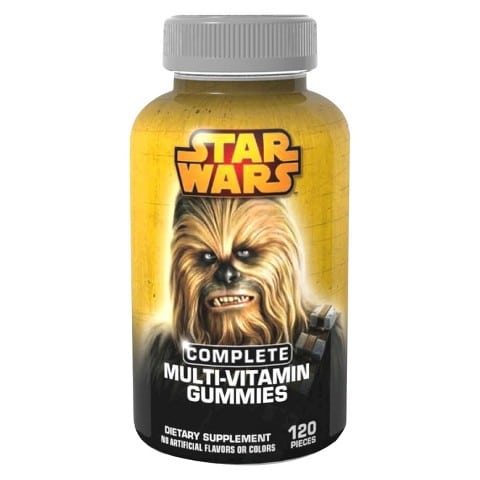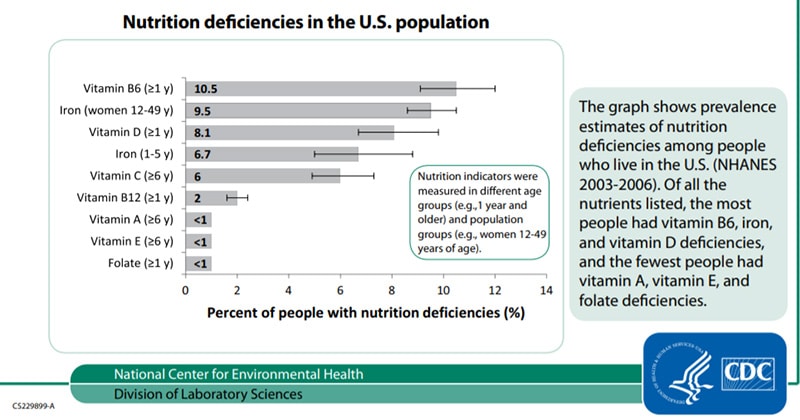Written by Danielle Robertson and interview with Leah McGrath, RDN
I’m not here to give you advice for how to convince picky eaters to eat.
You’ve probably heard enough tips and tricks, including all the magical ways you can hide fruits and vegetables in kid favorites, like those infamous black bean ‘brownies.’ Unfortunately, despite all of your begging, cajoling, and possible trickery, your kid is winning the battle. Sound familiar?

We all want our children to eat healthfully and get the vitamins and nutrients they need for their growing bodies. For all parents, this struggle is real, but even more so for parents of picky eaters. Parents of picky eaters know that good nutrition is difficult at best when their kids only eat dinosaur-shaped chicken nuggets and crust-less peanut butter and jelly sandwiches. So let’s set good dietary nutrition aside for a moment – and look at nutrients.
As a food scientist and competitive bodybuilder, my instinct is to recommend supplementing with multivitamins to help kids get the nutrients they might be missing with their picky eating habits. As an expert on vitamins in energy drinks, I know what vitamins adults need, but the nutrient needs of kids are much different than those of adults. So I contacted my friend Leah McGrath, a Registered Dietitian, to answer some questions. With Star Wars gummy vitamins on sale in the local supermarket, it seems like an easy solution for picky eaters – but is this really the best solution?
Danielle Robertson: Are there certain vitamins or nutrients that even the pickiest kids are still getting? I know pantothenic acid (vitamin B5) is prevalent in almost every food group, and many kids’ cereals are enriched with B-vitamins.
Leah McGrath, RD, LDN: It is so hard to respond to this definitively or generally and would depend on the individual child’s intake. When we say “picky eater” it’s important to frame that appropriately. Is this a child with food allergies or intolerances? Is this behavior learned in the home? Is the pickiness a symptom of another problem or bigger issue like autism spectrum disorder or a physical challenge? What foods are being avoided/eaten? How long has this been going on?
An important point to mention here is that we are seeing brands that opt for the “non GMO project” seal often drop vitamin/enrichment fortification packages since some vitamins are made using genetic engineering. I also see cases where gluten-free cereals have no vitamin/mineralenrichment packages and I think this is just a way of keeping cost down. So if parents are opting for “non-GMO” or gluten-free they need to realize that those vitamin/mineral enrichmen packages in cereal that they used to count on may no longer be there.
DR: What nutrients and vitamins are picky eaters most likely to be deficient in?
LM: Thankfully, true vitamin and mineral deficiencies are pretty rare in the U.S and again, it is going to depend on what a child is eating/avoiding. This chart shows a CDC report of some of the vitamins/minerals of concern in different populations:

Select nutritional deficiencies in the US population, from the CDC’s Second Nutrition Report.
For children it looks like iron and vitamin C are the ones parents should be most concerned about. For most of us iron is best absorbed from animal protein but can also be found in non-meat sources like beans and grains. Vitamin C helps us absorb iron. Vitamin C is in fruits, fruit juices, and vegetables.
DR: What does it take for children’s multi-vitamin to say “Complete Multivitamin”? Is this like the word “Natural” on food labels or is there an actual regulatory definition?
LM: I am not sure what “Complete Multivitamin” means unless it is just that it meets or exceeds all the Daily Recommended Intake (DRI)‘s for those Multivitamins.
NOTE: According to the National Institutes of Health Office of Dietary Supplements, “No standard or regulatory definition is available for an [multivitamin/mineral] MVM supplement—such as what nutrients it must contain and at what levels. Therefore, the term can refer to products of widely varied compositions and characteristics.”
DR: Are there any specific things a parent should look for in a multivitamin, such as red flags or important nutrients that should be included?
LM: Generally Americans tend to be “supplement happy” that means that many of us buy and take supplements, estimates range from 40-50% of Americans. This does not necessarily mean we need them! For most children the emphasis should first be on eating a varied and adequate diet.
That being said, here are my recommendations:
- If your child a “picky eater,” do they show strong food aversions or refuse to eat food from specific food groups e.g. no meat or no fruits and vegetables? Check with your doctor about their weight in relation to their height to make sure they are growing appropriately and also to check to see if this is a symptom of an illness, or emotional or mental disorder. Ask your physician about whether a simple chewable multi-vitamin may be advisable.
- If your pediatrician does advise a multi-vitamin make sure you supervise intake and keep these supplements out of reach of children as many of the new gummy vitamins look and taste like candy. Vitamin and mineral supplements are meant to supplement meals – not replace them!
- Remember that your child cannot and will not be able to eat the same amount of food as an adult. That’s why as you still try and encourage them to eat new foods, it’s important to give them a variety of foods in smaller quantities to provide them the variety of nutrients that they need. A good resource to help parents is the USDA’s program, My Plate.
- And as always, make sure to provide your children with the proper environment to encourage them to eat foods at meal times and snacks, i.e. no distractions, and generally limit or eliminate sweetened beverages before or with meals that will cause them to fill up on liquids rather than eating.
After speaking to Leah, I went to my local grocery store and randomly selected 3 children’s vitamins off of the shelf: Flintstones Sour Gummies, Star Wars Gummies, and Disney Gummies. Immediately I was struck by how all three of them said “Complete Multivitamin” on the label, and how all three implied they were preferred or favored among pediatricians. While the Star Wars and Disney vitamins had the same vitamin amounts, the Flintstones vitamins had slightly less vitamin A and vitamin C. Furthermore, the single-gummy recommendation with the “two gummies” dosing made it twice as hard to read and understand the contents of the Flintstones vitamins.
Comparing the nutritional data shows that these vitamins provide the Recommend Daily Allowance (RDA) for vitamins A, C and D, and almost the full RDA for folate. However, I also noticed that if I gave my hypothetical 3 year-old two gummies instead of the recommended dosage of 1 gummy for ages 2-3, I’d be giving her 2,100 IU vitamin A, which is over the “Upper Limit” for kids age 1-3.
For a great tool that shows you possible nutrient recommendations narrowed by a combination of age, weight, and height (as opposed food guidelines via Choose My Plate), you can follow this link to a nutrient calculator based on Dietary Reference Intakes (DRIs) developed by the National Academy of Science’s Institute of Medicine. It also can help you see how some supplements can easily be inappropriate for a child, as I mentioned above.
Since there are many, many options for children to choose from (at least 6 options in the store I visited), it’s important to continue to attempt positive food habits with your children while checking with your child’s physician about their nutritional needs before you begin supplementing their diet with vitamins.
You might want to consult a nutritionist, noting that a personal calling themselves a “nutritionist” may not be credentialed and also noting that GP’s are generally not highly trained in nutrition. Each child’s needs, health status, and reasons for “picky eating” are unique, so a full assessment before choosing a supplement is your best course of action.

